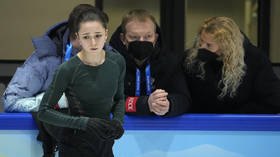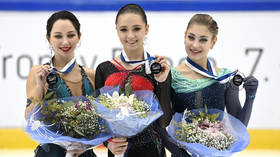Kamila Valieva is 15 years old – remember that as her Olympic ordeal unfolds
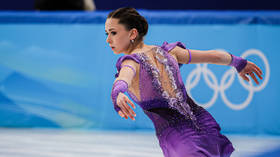
There’s no such thing as a guaranteed Olympic gold medal. Winning one, in the vast majority of cases, will be the conclusion of years of blood, sweat, and toil.
It’s not something that is handed to you on a plate.
But heading into the Beijing Winter Games, Kamila Valieva seemed about as close as you could get to being nailed-on for a gold medal.
In her first season in the ladies’ senior figure skating ranks, Valieva has obliterated the opposition. She set world records on the way to Grand Prix titles in Vancouver and Sochi, as well as in her imperious victory at the European Championships in Tallinn in January. No one could come close as Valieva blew her domestic competition off the ice at the Russian nationals at the end of December.
Valieva’s dominance is such that it is not entirely flippant to suggest that she might be better off competing with the men.
In Beijing, Valieva was primed to be propelled to stardom way beyond that which she already enjoys in figure skating circles. Her performance in her short skate routine during the team event confirmed exactly that. It was a thing of such beauty that it captured the imagination of everyone from Hollywood actors to lesser-known British tennis professionals. Even some of the Western media outlets often so begrudging with their praise of Russian athletes were forced – perhaps through gritted teeth – to lavish praise on Valieva.
Valieva’s second performance on the ice in Beijing, when she completed her free skate routine for the ROC team, saw the blemish of a fall but was nonetheless historic as she became the first woman in Olympic history to land a quad. Even with her slip-up, Valieva finished a full 30 points ahead of her nearest challenger, Japan’s Kaori Sakamoto, when the scores were dished out for their routines.
It was the crowning glory for the ROC team’s gold medal. Next, the stage was set for Valieva to shine in the ladies’ singles event. It’s not hyperbolic to suggest that appetites had been whetted for one of the finest sights of these Winter Games – or indeed any others before them. Individual gold was firmly within her grasp.
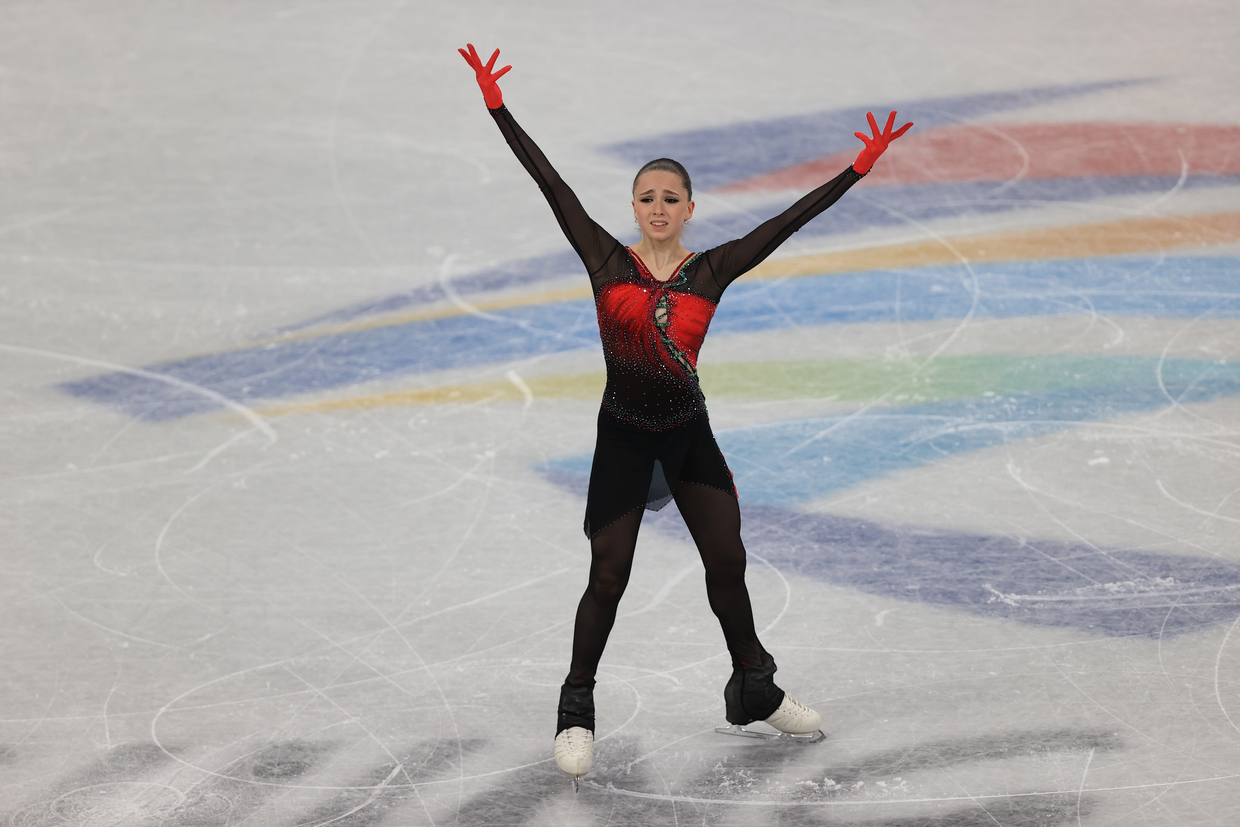
But within the space of a few days, events for Valieva have turned as dizzyingly as one of the quads which she so effortlessly lands.
First, we had the news that the medal ceremony for the team event would be delayed. Eyebrows were raised, but initially nothing more. Then came the news of a “legal issue,” accompanied by reports of a positive doping test among a member of the Russian team.
The trickle of rumor continued – some of it so ridiculous as not to warrant even the most caveated of reporting – until we were led to reports that Valieva was the one at the center of the scandal. According to Russian outlet RBC, the issue was that Valieva returned a positive test for traces of the heart drug trimetazidine, which is banned by WADA, in the weeks prior to the Beijing Games.
Finally, the bombshell dropped on Friday that Valieva had tested positive in a sample taken at the Russian nationals on December, and which had been sent to a WADA laboratory in Stockholm for analysis.
Russian anti-doping officials were informed and imposed a provisional suspension on Valieva, but she successfully appealed against that ruling on February 9 – a decision now being challenged by the IOC and ISU.
Even as we await a decision from the Court of Arbitration for Sport, a host of legitimate questions can be asked in the meantime: Will further investigations confirm the positive test? Why was the initial information about the result leaked to the media before the announcement on Friday, especially considering Valieva’s age? Was a substance like this really allowed anywhere near Valieva’s body? If so, why? Why would Russian doctors or coaches offer even a whiff of opportunity for doping allegations, considering recent history? Most importantly – and most suspiciously – why has this only just been reported, after Valieva had taken to the ice in Beijing and already won gold?
One hopes that we will receive satisfactory answers to these questions in the coming days.
Someone who most definitely should not face any public inquisition is Valieva herself. Whatever plays out, she can only ever be seen as the victim in all of this – even if she goes on to win the gold in Beijing.
After all, this is a girl who doesn’t turn 16 until the end of April. Part of the complications of any WADA case – confirmed or not – are that athletes under 18 are minors, and there is no obligation to make their names public, as opposed to others who are over that age. Put simply, Valieva is a child.
She arrived in Beijing chasing an Olympic dream, having already sacrificed what would could be considered a ‘normal’ childhood in service of her figure skating hopes.
She has done so under the tutelage of Eteri Tutberidze – a brilliant yet demanding trainer, whose talent factory has produced a conveyor belt of champions, and who is training all three of the Russian ladies’ singles contenders in Beijing. When asked about Valieva’s situation on Thursday, after the skater had taken to a training session in Beijing, Tutberidze replied curtly that she doesn’t deal in “gossip.”
Speculation has undoubtedly been stirred by a media frenzy in Russia. RBC reported the news that trimetazidine was the drug in question. That, or the claim that Valieva is actually being investigated, are yet to be officially confirmed. There have been claims that the skater has been suspended – an accusation since retracted, and for which the Russian outlet involved has apologized.
It’s inevitable that cheap clicks will be chased, but there is also a more genuine desire to find out what is happening with the nation’s figure skating darling. There is legitimate support and concern for Valieva. In a similar vein, some have quite rightly taken issue with much of the reporting surrounding the situation. Perhaps some will find scruples with the fact that people like me are writing stories like this, opening up accusations of hypocrisy.
Rest assured that the aim here, however, is not to sensationalize or stir; instead, it is to give pause for thought.
Meanwhile, the scandal will gladly be used as a stick to beat Russia with as the country already negotiates a ban for long-running allegations of doping. The Washington Post has claimed “everyone could have seen” the issue coming; in the UK, The Telegraph has likewise linked it to broader battles with Russia.
Anyone seizing upon the situation as ammunition for political potshots or otherwise needs to take a long hard look at their moral compass, and realize it is badly in need of repair. If they have a shred of decency, reporters will not hitch agendas to Valieva in this case, and will instead treat her with the sympathy, space and respect she deserves.
It was not that long ago that the Western media were so keen to smother another young Olympic sensation with support as she endured an ordeal at the Games. In that case it was Simone Biles and her battles in Tokyo, although one suspects that Valieva might not be granted the same sympathy, purely by dint of her nationality.
Above all, there needs to be compassion for Valieva – a skater whose heart-wrenchingly exquisite short program is skated to the tune of ‘In Memoriam’ and is dedicated to her late grandmother. After performing it in Beijing, Valieva was forced to hold back tears.
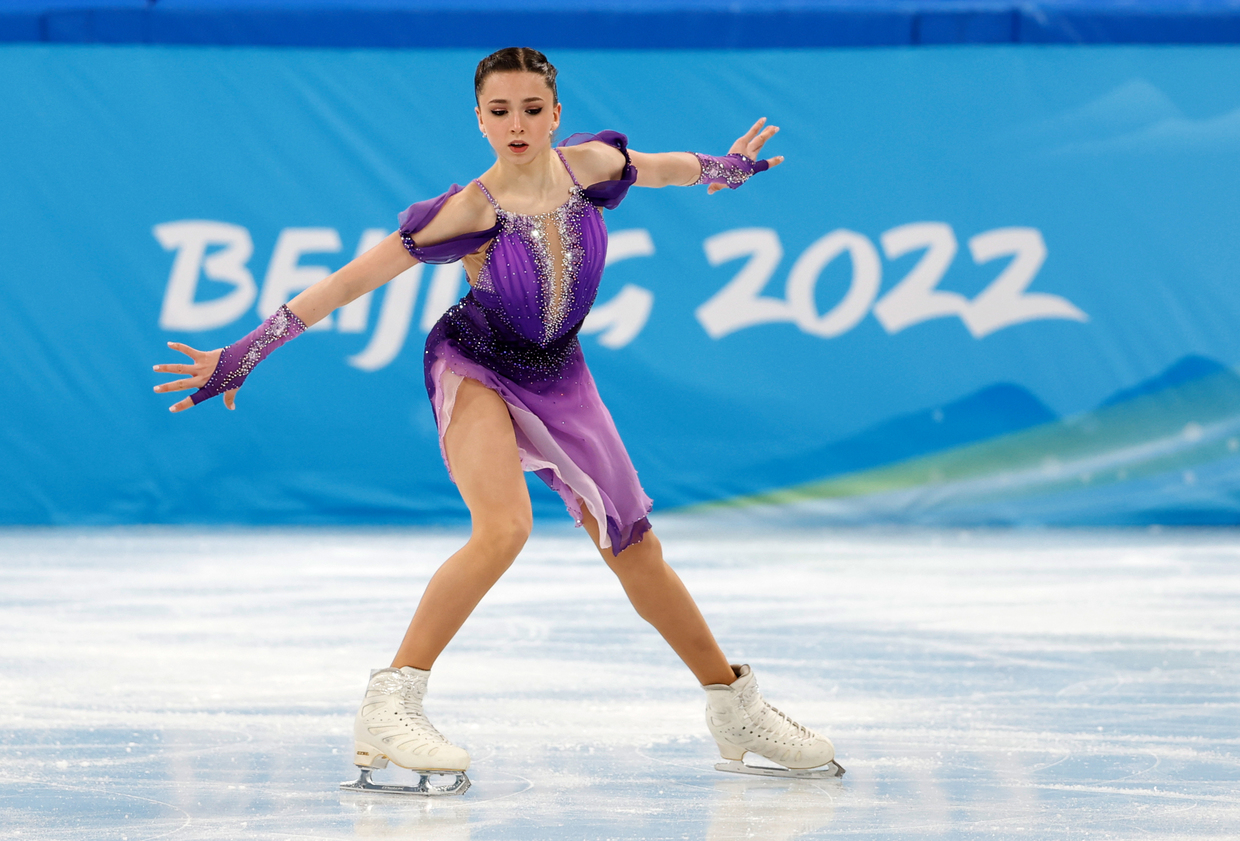
One hopes that Valieva will be shielded from much of what is transpiring. Even though she is media-savvy and accustomed to the spotlight to some extent, she now finds herself in the center of a glare that was unimaginable before these Games began.
Kamila Valieva is just 15 years old. Keep that at the forefront of your mind as this particular saga plays out in Beijing.
By Liam Tyler
The statements, views and opinions expressed in this column are solely those of the author and do not necessarily represent those of RT.
